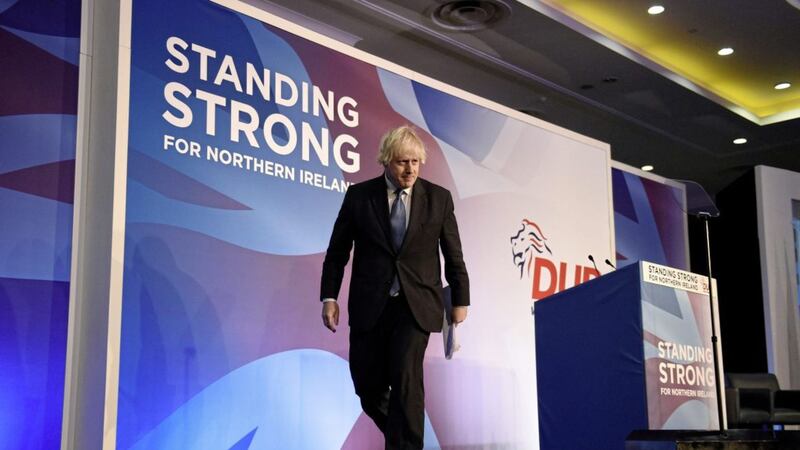Rory Stewart was never going to make it through to the last two in the Conservative Party's leadership contest, let alone come close to winning the keys to Number 10. And that's because he was never the answer to the party's present and ongoing dilemma.
There was no way someone as soft as him on Brexit would have seen off the challenge from Nigel Farage's Brexit Party; and no way that a party whose 160,000 members are overwhelmingly in favour of exiting without any further negotiations was going to endorse his extreme caution.
I quite liked the idea of a Rory vs Boris showdown. If nothing else it would have allowed the members to hear a proper debate about the sheer scale of the problems facing them. Boris is brilliant at working the room and galvanising the grassroots, but not so good at the nitty-gritty detail of what a renegotiated deal would look like, or explaining the possible negative consequences of a no deal. He still thinks that continuous loop replays of "We're a strong nation with a proud history and we can emerge victorious from any circumstance" is enough to carry the day. Mind you, if you happen to be a multi-millionaire, or likely to pop your socks in the next 3-5 years (a key demographic within the Conservative Party), then he's probably right.
But Boris has another problem. The grassroots aren't actually looking for someone to see off the challenge from Nigel Farage. The grassroots like Nigel Farage and they would like Boris to be more like him. Indeed, they want Boris to steer well to the right of Nigel; many of them would probably be delighted with an electoral pact which ended up with Nigel as deputy prime minister to Boris (some would be happy enough if the relationship was actually the other way round).
Yet Boris knows that he is in the role of the dog chasing the car, catching it and then discovering that he can't drive it.
Margaret Thatcher, in the weeks leading up to her downfall, was accused of being in office, but not in power. Boris will be prime minister in a few weeks, but he won't be master of either parliament or of his own backbenchers. He will hope that an overwhelming win from the grassroots would give him the sort of mandate which would quell backbench rebellion, but I'm not sure that would be the case. He will also be wary of a pre-deal general election, just in case Farage - who doesn't trust him as far as he can see him - polls much better than expected, leaving Boris at his mercy.
Oddly enough, Boris seems to be in the same sort of position as David Trimble was in after the Good Friday Agreement was signed and the UUP went into meltdown. Brexit actually represents the 'Ulsterisation' of GB politics. It has become their version of the 'dreary steeples' landscape and the fixed point of political debate. The Brexit Party - and it is not, of course, an exact parallel - has become the DUP to Boris's UUP. Lifelong members are switching from Conservative to Brexit Party and it is no longer fanciful to suggest that the party which dominated UK politics for so long could be eclipsed by the upstart from its right.
The first past the post system tends to favour the big two parties, but there is a tipping point - around the 22-25 per cent level of support - when a big party can see its seats begin to tumble. Opinion polls, the recent Euro and council elections and the Peterborough by-election suggest that the Conservative, Labour, Lib-Dems and Brexit parties are all in play at the moment, with the Greens also capable of stirring up the electoral waters. Boris will also be aware of what happened to Theresa May in 2017 and what happened to Jim Callaghan (1979), John Major (1992/97) and Gordon Brown (2010). All of them became prime minister when their predecessor stepped down and all four went on to either lose the next election completely, win with a cripplingly small majority, or require a deal to keep them in office. If Boris isn't pretty sure he can buck that trend, he won't go down the election route.
So, he will become PM without much of a strategy for what to do next. He likes to encourage comparisons with Churchill, but Churchill became PM at the head of a national coalition and then the Conservatives lost the next election in spectacular fashion. Neither of those outcomes appeals to Boris. He was vague in Tuesday's debate and didn't make a specific commitment to leave on October 31. Boris has always enjoyed being verbosely vague. That's not going to be enough anymore.








